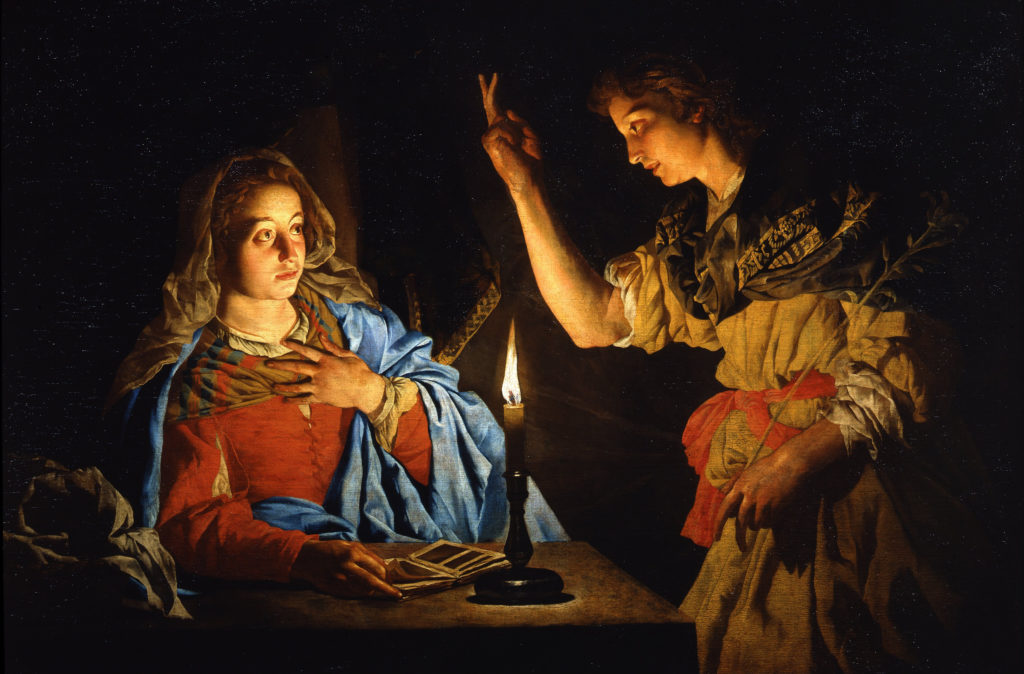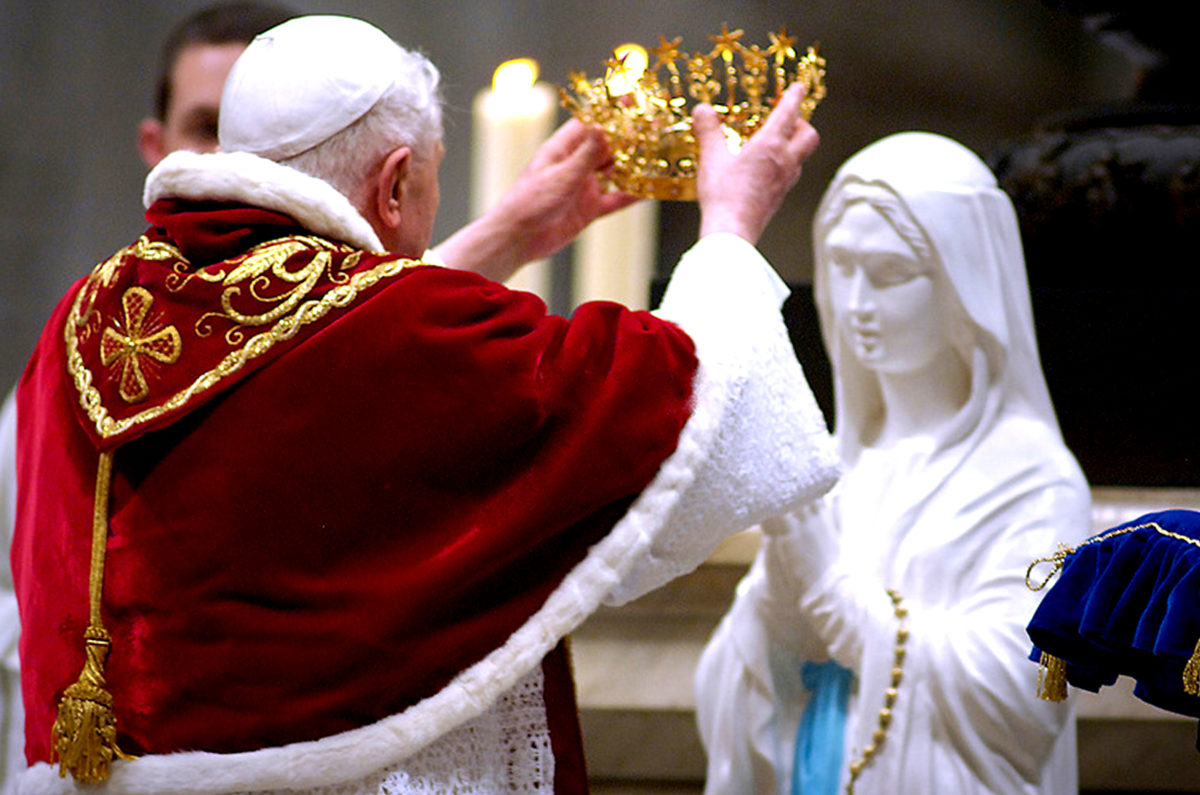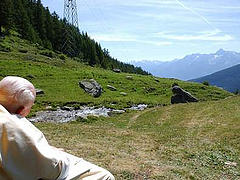I’m a lector at my parish. One of the perks of serving as a lector is that my parish provides me with a workbook for the readings that contain explanations and commentary. Reading this book during the week helps me obtain a deeper understanding of the readings at Sunday Mass. I want to start providing you insight into the Sunday Gospels and how they relate to the rosary. This way, when you pray the rosary, you can integrate the Sunday readings into your meditation as well. Think of this as doing your Sunday Mass homework.
The Gospel for Sunday, August 28, 2016, is:
On a sabbath Jesus went to dine
at the home of one of the leading Pharisees,
and the people there were observing him carefully.
He told a parable to those who had been invited,
noticing how they were choosing the places of honor at the table.
“When you are invited by someone to a wedding banquet,
do not recline at table in the place of honor.
A more distinguished guest than you may have been invited by him,
and the host who invited both of you may approach you and say,
‘Give your place to this man,’
and then you would proceed with embarrassment
to take the lowest place.
Rather, when you are invited,
go and take the lowest place
so that when the host comes to you he may say,
‘My friend, move up to a higher position.’
Then you will enjoy the esteem of your companions at the table.
For every one who exalts himself will be humbled,
but the one who humbles himself will be exalted.”
Then he said to the host who invited him,
“When you hold a lunch or a dinner,
do not invite your friends or your brothers
or your relatives or your wealthy neighbors,
in case they may invite you back and you have repayment.
Rather, when you hold a banquet,
invite the poor, the crippled, the lame, the blind;
blessed indeed will you be because of their inability to repay you.
For you will be repaid at the resurrection of the righteous.”
When I initially read this Gospel passage, I felt like I was reading the biblical equivalent of an Amy Vanderbilt etiquette book on how to politely find your place at a banquet table. The reading confused me because it seemed like Jesus was giving his disciples a social hack for getting to a place of honor in a disingenuous way. Is it not false humility to sit at a lowly spot of the table expecting the host to come and fetch you and put you where you think you deserve to be? I can almost picture that fake humble person sitting next to the stereotypical “chatty lady,” not even listening to her but scanning the room making sure the host sees him so he can “rescue” him from the dregs.

The confusion lifted when I realized that Jesus asks us to behave as the guest and the host! Jesus talks about the host not looking for reciprocity or acknowledgment for his efforts. But that is also the same requirement for the guest who takes the lowest spot at the table. He should not be looking for the host to save him from his situation but rather, accept and enjoy his situation regardless of the outcome. After all, the guest should be thankful and grateful that he was invited to the feast at all. We too should be grateful for all the blessings God bestows on us even when it seems like others have it better.
The people who are truly humble and accepting of their situation are ultimately the happiest. They are not always looking for something better but find contentment with what they have. That is because they do not come with any preconceived notions of their importance but they just do what needs to be done. They do not worry about who notices them or if they will receive a certain level of reward. In a sense, the humble person is free from the burden of self-imposed expectations or entitlement. When you do not feel entitled to that place of honor, being elevated to it makes it that much more glorious.
Just about every mystery of the rosary teaches some aspect of humility and the glory that comes out of it. The rosary itself is bookended by these two traits by the First Joyful Mystery and the Fifth Glorious Mystery. In the Annunciation, Mary humbly accepts God‘s plan for her. She does not turn God down or try to reshape His request into something she would prefer. God is essentially upending Mary’s life but her humble reply is, “Here am I, the servant of the Lord; let it be with me according to your word.”

When we walk and talk with Jesus through the rosary, we finish with Mary being crowned Queen of Heaven. Like the person sitting at the lowest spot of the banquet table only to be seated at the place of honor so was Mary glorified after her lifetime of humbly accepting God’s plan for her and the pain and sorrow that it entailed. She is our model for our ultimate elevation to a place of honor in Heaven when we live in earnest, humble service of God’s plan for us.
When you pray the First Joyful and Fifth Glorious mysteries of the rosary, pray and ask yourself:
- Am I living a sincerely humble life or showing a fake sense of humility as a means to more selfish ends?
- Am I content and satisfied with all God has given me or am I expecting something better?
- Am I looking to Mary as an example of humility?
- Am I showing humility by putting my trust in God’s plan or am I trying to avoid or amend it?




































